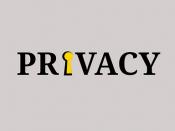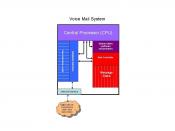Employee monitoring involves the use of computers to observe, record, and review as employee's use of a computer, including communications such as e mail, keyboard activity (used to measure productivity), and Web sites visited. Many computer programs exist that easily allow employers to monitor employees. Further, it is illegal for employers to use these programs.
A frequently debated issue is whether an employer has the right to read employee e-mail messages. Actual policies vary widely. Some companies declare that they will review e-mail messages regularly; others state that e-mail messages are private. If a company does not have a formal e-mail policy, it can read e-mail messages without employee notification. One recent survey discovered that more than 73 percent of companies search and/or read employee files, voice mail, e-mail messages, Web connections, and other networking communications. Another claimed that 25 percent of companies have fired employees for misusing communication technology.
Currently, no privacy laws exist relating to employee e-mail (Privacy Laws and Personal Data). The Electronic Communications Privacy Act provides the same right of privacy protection that covers the postal delivery service and telephone companies to various forms of
electronic communications, such as e-mail, voice mail, and cellular telephones. The Electronic Communications Privacy Act, however, does not cover communication within a company. This is because any piece of mail sent from an employer's computer is considered company property. Several lawsuits have been filed against employers because many people believe that such internal employee communications should be private (Slobovic and Stuart 144-160).






Needs more facts.
You're just stating facts, you need to tell more about employee privacy laws and give a more indepth facts about how or what companies do in terms of monitoring the aativities of their employees and the action they take.
0 out of 0 people found this comment useful.